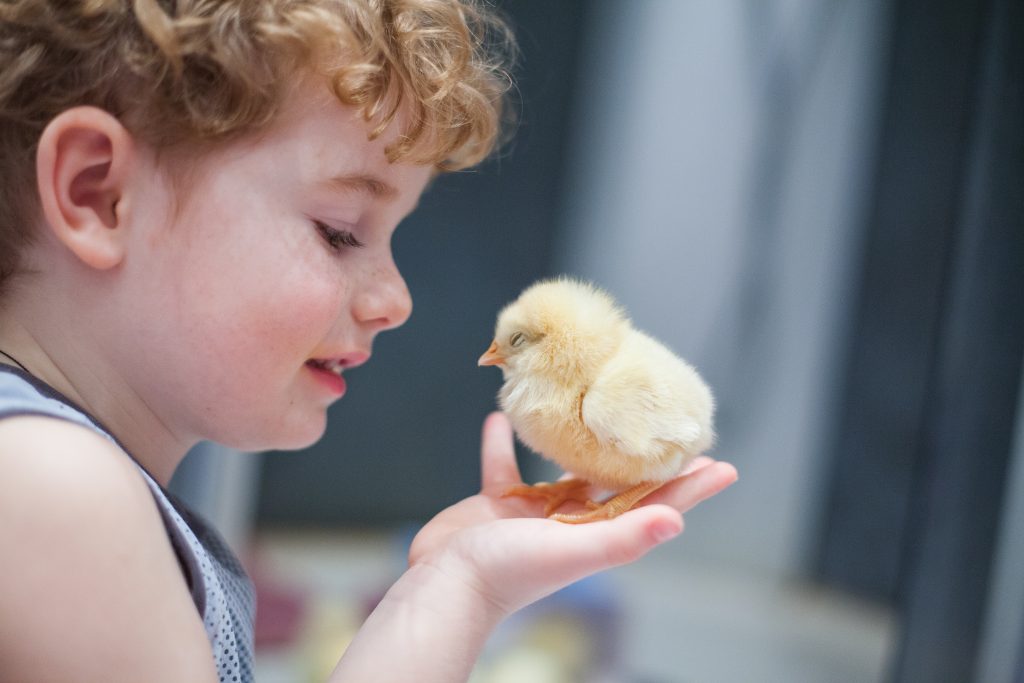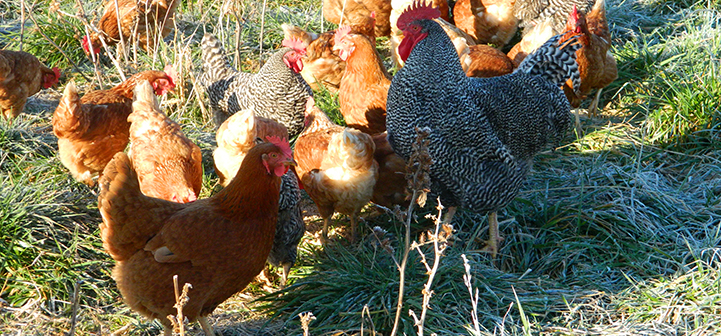Written by: Dr. Jacquie Jacob, University of Kentucky

Most people know Salmonella can be found in raw and undercooked meat, poultry, dairy, and eggs. But often they don’t know backyard poultry can carry the Salmonella germs that make people ill.
When people had chickens and ducks on the farm, the poultry weren’t considered pets. They were livestock. People didn’t hold them or come in close contact as they might today with backyard chickens. Owners of backyard flocks need to be sure people who are around their poultry wash their hands often and that the manure is disposed of properly. Proper disposal of chicken manure includes composting, incinerating, and removal by a waste management service.
Many people think about backyard chickens as they think about their outdoor dogs and cats. When you touch any outdoor animal, you need to wash your hands.
Children have naive immune systems which make them more susceptible to the bacteria. Adults with weakened immune systems and the elderly are also susceptible to the bacteria. Salmonella germs can cause diarrheal illness in people that can be mild, severe, or even life-threatening.
Salmonella can live in the intestines of birds and not affect the health of the poultry, but it can affect the humans who touch the poultry or the surfaces the birds have touched. Live poultry may have Salmonella germs in their droppings and on the outside of their bodies (feather, feet, and beaks) even when they appear healthy and clean. The germs can be on cages, coops, hay, plants, and soil in the area where the birds live and roam. The germs can be on the hands, shoes and clothing of those who handle the birds or work or play where they live and roam.
There have been reported outbreaks of human Salmonella traced back to backyard poultry flocks. In 2019 as of May 16, there were 52 people infected with the outbreak strains of Salmonella were reported from 21 states. Five people hospitalized and no deaths were reported. Children younger than 5 years of age represented 28% of the infected people.
CDC advises consumers to:
-
- Wash your hands thoroughly with soap and water right after touching live poultry or anything in the area where they live and roam. Adults should supervise hand washing for young children. If soap and water are not readily available, use hand sanitizer until you can wash your hands thoroughly with soap and water.
- Do not let live poultry inside the house, in bathrooms, or especially in areas where food or drinks are prepared, served, or stored such as kitchens or outdoor patios.
- Do not let children younger than five years of age, older adults or people with weak immune systems handle or touch chicks, ducklings, or other live poultry.
- Do not snuggle or kiss the birds.
- Do not touch your mouth, eat, or drink around live poultry.
- Clean any equipment or materials associated with raising or caring for live poultry such as cages, feed and water containers outside the house on a weekly basis.
If your chickens are allowed to free-range in your backyard, consider the area contaminated and a possible source of salmonella.

